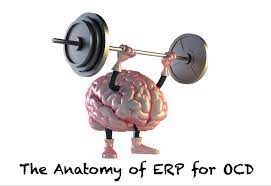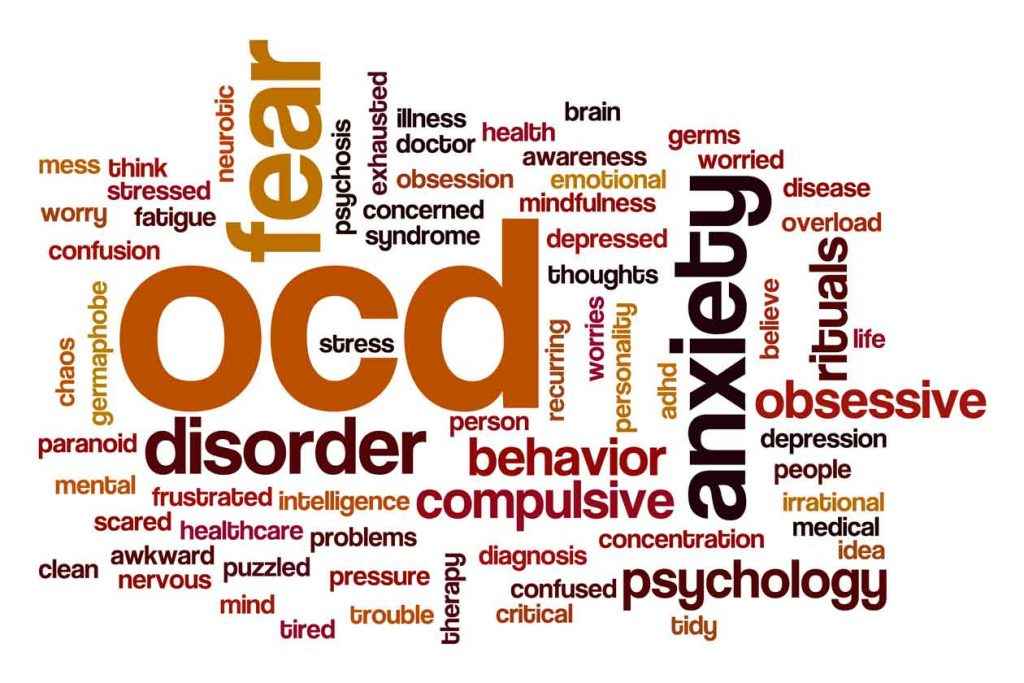ERP script OCD, also known as Obsessive Compulsive Disorder, is a mental health condition that affects how a person thinks, feels and behaves. People with ERP script OCD often have intrusive thoughts and repetitive behaviors that they can’t control. If you or someone you know is struggling with ERP script OCD, there are ways to overcome it! In this blog post, we will discuss what ERP script OCD is, its symptoms of it, and how to get help.
Contents
What Is ERP Script OCD?

Inspiring statements remind me that life can be unpredictable, uncertain, and uncomfortable, regardless of what OCD claims. Empowering statements that remind me that I am stronger and more powerful than OCD.
ERP script OCD is an anxiety disorder that involves people having persistent intrusive thoughts and irrational behaviors. People who suffer from ERP script OCD often feel like they have to perform certain tasks in order to prevent harm or bad things from happening. This can include checking locks, counting objects, and other compulsive behaviors.
Symptoms
There are various symptoms of ERP script OCD:
Over-planning
People with ERP script OCD spend a considerable amount of time over-planning and over-analyzing their actions before they take them. This can be seen in the way they go through every step of the process even though it may not be necessary or it could lead to delays in completing simple tasks.
Perfectionism
People with ERP script OCD are often perfectionists, always striving to make sure that everything is done perfectly and according to the exact steps in their plan. This can lead to them spending a lot of time on small details and not being able to move on until everything is exactly as it should be.
Difficulty accommodating unexpected changes
When something unexpected happens, people with ERP script OCD may have difficulty adjusting their plans or scripts to accommodate the change. They tend to become rigid in their thinking and behavior, which can make it difficult to adjust to new situations or tasks.
Anxiety
People with ERP script OCD often experience high levels of anxiety when they are forced to move away from their planned scripts. This is because they worry that something will go wrong or that their script might not be perfect enough.
Difficulty making decisions
Making decisions can be a difficult task for people with ERP script OCD as they may struggle to break out of the confines of their scripts to consider alternate options. This can lead to delays in making decisions or even avoidance of decision-making altogether.
Difficulty transitioning between tasks
People with ERP script OCD may find it difficult to transition from one task to another, as they will first need to go through all the steps in their pre-planned script. This makes multitasking or switching between tasks a difficult task for them.
Avoidance
People with ERP script OCD may begin to avoid activities that they know will require deviating from their planned scripts, in order to avoid the anxiety and difficulty associated with it. This can have an adverse effect on their day-to-day life as they begin to avoid more and more tasks.
Feeling overwhelmed
People with ERP script OCD can become easily overwhelmed when presented with a task that does not fit into their pre-planned scripts. This is due to the fact that they have difficulty accommodating unexpected changes and making decisions outside of the scripted actions. This can lead to further avoidance of tasks and activities.
Feeling out of control
People with ERP script OCD may feel like they are not in control of their actions or the outcome, as they often rely heavily on the scripts that they have pre-planned. This can cause them stress and can lead to feelings of helplessness.
Poor self-esteem
People with ERP script OCD may also experience poor self-esteem due to the fact that they are unable to complete tasks without having a pre-planned script. This can lead to feelings of inadequacy and failure, as they do not feel like they have control over their own actions.
ERP script OCD is a serious condition that can cause significant distress and disruption in day-to-day life. If you are experiencing any of the above symptoms, it is important to seek help from a mental health professional. With proper treatment, you can learn skills to manage you are and lead a more fulfilling life.
Does ERP Work For OCD?
The simple answer is yes, ERP can be an effective treatment for OCD. Exposure and response prevention (ERP) is a type of cognitive-behavioral therapy that has been shown to be an effective form of treatment for obsessive-compulsive disorder (OCD). ERP involves gradually exposing yourself to the thoughts, images, objects, or situations that trigger your anxiety, while you practice ways of not engaging in compulsive behaviors when these triggers occur. This process helps to decrease the intensity and frequency of OCD symptoms over time.
ERP teaches individuals with OCD how to confront their fears instead of avoiding them. The idea is to repeatedly expose yourself to feared stimuli until the fear decreases. The process of exposure can often be uncomfortable, but the discomfort is usually temporary and will eventually subside with practice. During ERP sessions, individuals learn to recognize the thoughts that trigger their OCD symptoms and develop coping strategies to manage them.
Treatment
There is various treatment:
Cognitive-Behavioral Therapy (CBT)
CBT is a type of talk therapy that can help people with ERP script OCD learn to identify and challenge the negative thoughts and behaviors that are associated with their condition.
Exposure and Response Prevention (ERP)
This type of treatment involves exposing oneself to situations or tasks that trigger OCD and then learning to cope with the anxiety and distress associated with deviating from pre-planned scripts.
Medication
In some cases, medications such as selective serotonin reuptake inhibitors (SSRIs) may be prescribed to help reduce symptoms
It is important to note that everyone’s experiences and responses to treatment are unique. It is important to work with a mental health provider who can help you find the best treatment approach for your individual needs.
With appropriate support and treatment, it is possible to manage it and lead a more fulfilling life. If you think you may be experiencing symptoms of ERP script OCD, it is important to reach out for help. A mental health professional can provide you with the support and resources that you need to manage your condition.
How Long Does ERP Take To Cure OCD?
ERP therapy for OCD can take anywhere from several weeks to several months, depending on the severity of the condition. Additionally, some people may need continued support and treatment to manage their symptoms over time. It is important to work with your mental health provider to determine a timeline that works best for you and your situation.
Though it may seem daunting at first, it is possible to find relief from it and take control of your life. With the right assessment and treatment plan, you can live a more fulfilling life without the strain of symptoms. It is important to remember that recovery is an ongoing process, so don’t be discouraged if it takes longer than expected. Perseverance and dedication to the process will pay off in the end.
Be sure to take breaks if things become overwhelming and talk to a mental health professional if needed. Additionally, it’s important to stay proactive when managing OCD symptoms.
Conclusion
In summary, ERP script OCD is a type of obsessive-compulsive disorder that involves pre-planning and repetition of tasks in order to feel in control. Symptoms of ERP script OCD can include difficulty transitioning between tasks, avoidance of activities, feeling overwhelmed, feeling out of control, and poor self-esteem. Treatment options such as CBT, ERP, and medication may be used to help manage symptoms. With the right support and treatment, it is possible to manage it and lead a more fulfilling life. If you think you may be experiencing symptoms of ERP script OCD, it is important to reach out for help. A mental health professional can provide you with the tools and resources that you need to manage your condition.
Thanks for reading! Good luck on your journey to recovery!
For more information and guidance, please contact OCDMantra. OCD is a mental health disorder characterized by obsessions and compulsions. If you have any queries regarding OCD treatment, ERP therapy experienced therapists at OCDMantra can help: Book a trial OCD therapy session


